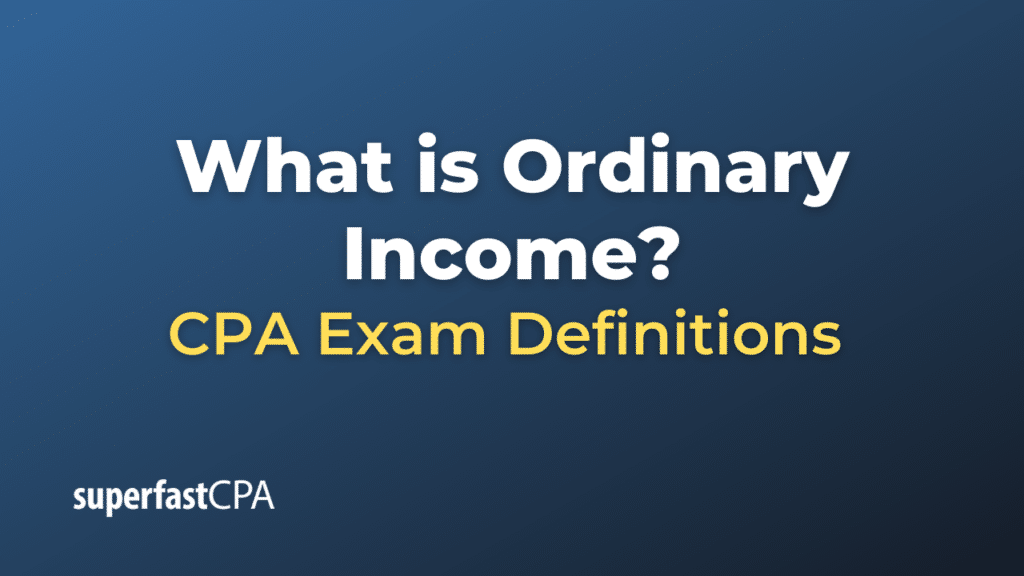Ordinary Income
Ordinary income is a term in tax accounting referring to the type of income subject to regular federal income tax rates. It’s the income earned from providing services or the sale of goods, but it can also include interest, dividends, rent, royalties, or any other type of income that isn’t classified as a capital gain.
For individuals, ordinary income includes:
- Wages, salaries, bonuses, and other compensation.
- Business income from a trade or business.
- Interest income.
- Dividends that are not qualified dividends.
- Rental income from a property.
- Royalties.
- Pensions and annuities.
For businesses, ordinary income is generated from the core operations of the business, as opposed to peripheral or incidental activities.
In the United States, ordinary income is taxed at the individual’s marginal tax rate, which varies depending on the individual’s tax bracket. This is typically higher than the long-term capital gains tax rate, which applies to the sale of assets held for more than one year.
Therefore, from a tax perspective, it’s generally more beneficial to earn income as capital gains rather than ordinary income.
Example of Ordinary Income
Let’s take the example of an individual named John and a company called XYZ Inc.
Individual Example – John:
John is an engineer who works for a tech firm and gets paid a salary. His salary, any bonuses he receives, the interest he earns from his savings account at the bank, any rental income he receives from a property he rents out – all of these are examples of ordinary income. This is because they are not derived from the sale of an asset held for more than a year, which would qualify as a capital gain.
Say John receives:
- $80,000 in salary
- $5,000 in bonuses
- $1,000 in bank interest
- $12,000 in rental income
His total ordinary income for the year would be $98,000.
Business Example – XYZ Inc:
XYZ Inc. is a company that manufactures and sells electronic goods. The money it earns from selling these goods is considered ordinary income because it’s generated from its primary business operations.
If XYZ Inc. sells $1 million worth of electronics in a year, spends $600,000 on manufacturing costs, $200,000 on administrative and selling expenses, then its ordinary income or operating profit would be $200,000 ($1 million – $600,000 – $200,000).
If the company also owns an office building that it rents out for $50,000 per year, this rental income would also be considered ordinary income.
However, if XYZ Inc. sells a piece of machinery it had owned for more than a year for a profit, the profit would be considered a capital gain, not ordinary income.













